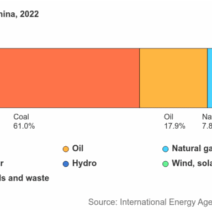The global warming debate remains a pivotal discourse in contemporary society, inexorably linked to myriad facets of environmental ethics, economic policies, and public health. Understanding how advocates select their databases and the implications of these choices is crucial for anyone seeking to comprehend the complexities of climate change rhetoric and action. This exploration encompasses the types of content readers can expect from advocates, the importance of credible data, and the ramifications of selective information dissemination.
At the heart of the global warming debate lies a plethora of data sources, ranging from scientific journals to grassroots surveys. When advocates select their databases, they often seek a combination of quantitative and qualitative data, each serving unique purposes in articulating their arguments. For instance, statistical studies provide irrefutable evidence, bolstering claims about rising sea levels or increasing atmospheric temperatures, while anecdotal evidence can resonate on an emotional level, making the abstract nature of climate phenomena more tangible.
Moreover, the credibility of data sources is paramount. Reputable scientific organizations and peer-reviewed journals are often favored by advocates as they adhere to stringent methodological standards. This credibility is essential in an era where misinformation threatens to undermine supportive public opinion and effective policy-making. Features such as the journal impact factor, the authors’ qualifications, and the transparency of the methodology involved play a critical role in discernment. Advocates who prioritize these elements ensure that their arguments are fortified by sound data.
The selection of databases often reflects an advocate’s specific agenda. For instance, environmentalists focusing on renewable energy may tilt towards databases showcasing advancements in solar and wind technologies, while others may foreground studies revealing the adverse effects of fossil fuels on public health. This strategic selection underscores the importance of transparency around methodologies and data selection criteria. Readers can expect that when advocates lack clarity regarding their database selections, the arguments may be skewed or incomplete.
In the realm of persuasive communication, context is vital. Advocates leverage different types of content to reach diverse audiences effectively. For instance, visual content such as infographics can distill complex data into digestible formats, making it easier for laypersons to engage with complicated statistics. Conversely, detailed reports filled with empirical data cater to an audience equipped for critical analysis. This dichotomy illustrates the versatile tools available to climate advocates in their efforts to inform and mobilize public sentiment.
Additionally, qualitative content, including case studies and personal narratives, serves to humanize the issue of global warming. By sharing stories of communities disproportionately affected by climate change, advocates can evoke empathy, a powerful motivation for action. Audiences are more likely to relate to personal stories than abstract data. Integrating emotive narratives with statistical evidence can create a compelling case that not only informs but also inspires proactive engagement with the cause.
Advocates also utilize various platforms to disseminate their content, each with its own advantages and limitations. Social media, for example, allows for the rapid sharing of content but often prioritizes brevity over depth. This environment can lead to the oversimplification of complex issues. Conversely, academic journals provide in-depth analyses but can be inaccessible to the general public due to technical jargon. Thus, the choice of platform often determines the reach and impact of the advocacy efforts.
Furthermore, interactivity in the communication process enhances audience engagement. Some advocates move beyond traditional narratives by employing interactive dashboards and visualization tools that allow users to explore data sets on their own. This participatory approach transforms passive consumers of information into active participants in the debate, fostering a deeper understanding of the issues at hand.
One of the most critical considerations in this debate is the ethical dimensions of data selection and presentation. Advocates must navigate the fine line between urgency and alarmism. While it is essential to convey the severity of climate change, exaggerating risks can lead to desensitization or apathy. Ethical data advocacy involves presenting information responsibly, adhering to the principles of transparency and integrity. Readers should be wary of sensationalist claims lacking robust empirical support and demand rigor in data presentation.
The intersection of science and communication also introduces the concept of scientific literacy among audiences. Advocates not only need to present data but also educate their audiences on interpreting it. This includes demystifying scientific terminology and elucidating the significance of various metrics related to climate change. By fostering a more scientifically literate public, advocates can cultivate a more informed citizenry capable of critical thought and engagement in environmental issues.
Ultimately, the selection of databases and the strategic presentation of data in the global warming debate are paramount components influencing public perception and policy development. Advocates wield the formidable power of information, which can ignite conversation, drive policy changes, and mobilize collective action. By understanding the intricacies of data selection, content types, and the ethical implications associated with these choices, stakeholders can navigate the complexities of the climate discourse more effectively.
In summary, the global warming debate is multifaceted, characterized by a range of data sources and content types that collectively shape public understanding. The careful selection of databases is not merely an operational choice but a strategic imperative that can significantly impact advocacy efforts. As stakeholders in environmental discourse, a commitment to integrity, transparency, and education remains essential in fostering a more informed and proactive society.







